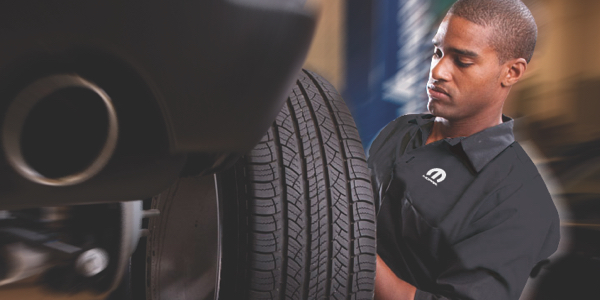Morris Tire Service: Trusted and Inexpensive Treatment
The Web Link Between Tire Service and Gas Performance
Effectiveness in fuel consumption is a critical issue for car proprietors looking for to maximize their driving experience. Among the various elements that influence gas effectiveness, tire service stands apart as an essential element that often goes forgotten. The detailed connection in between tire maintenance and fuel economic situation is a testament to the complex workings of an automobile. By understanding how tire care directly influences the efficiency of your vehicle, you can open a realm of possibilities that not just enhance performance but additionally add to set you back savings over time.
Significance of Correct Tire Inflation
Proper tire rising cost of living is a vital factor in maximizing gas efficiency and making sure optimal car performance. On the various other hand, overinflated tires can lead to a harsher trip, irregular tire wear, and lowered traction - morris tire.
Keeping the appropriate tire stress not just enhances gas effectiveness yet likewise improves driving safety and security. Correctly inflated tires provide better handling, stopping, and total efficiency when driving. Additionally, they add to prolonging the lifespan of the tires, saving you money over time by reducing the regularity of substitutes. Regularly examining and readjusting tire stress, particularly eventually journeys, is a basic yet efficient way to maximize your automobile's fuel economy and ensure a smooth driving experience.
Influence of Tire Footstep Deepness
Preserving the suggested tire pressure is important for ideal vehicle efficiency and gas effectiveness; similarly, the walk depth of your tires plays an important function in making sure security and traction on the roadway. Tire walk deepness directly affects the capacity of your tires to grip the road surface area, especially in wet or unsafe problems. As tires wear down, their step depth declines, affecting their capacity to network water away and preserve proper call with the road. The advised minimum step depth is normally 2/32 of an inch, however, for improved security and efficiency, lots of experts suggest altering tires prior to they reach this factor. Proper step depth not only makes sure better handling and braking yet additionally contributes to sustain efficiency by lowering rolling resistance. Routinely evaluating your tire step depth and changing tires when necessary is a basic yet effective means to advertise both security and gas efficiency when driving.
Duty of Wheel Placement in Effectiveness
Making sure precise wheel placement is important for enhancing car effectiveness and making the most of fuel economy. Correct wheel placement includes readjusting the angles of the wheels to producer requirements, guaranteeing that they are identical to each other and vertical to the ground. When wheels are misaligned, it can lead to unequal tire wear, increased moving resistance, and lowered fuel performance.

Furthermore, accurate wheel positioning can also enhance managing and security, decreasing the quantity of energy needed to navigate the lorry (morris tire). By lessening unneeded rubbing and drag, correct wheel placement plays an important function in improving total lorry performance and gas economic climate. Routine wheel alignment checks and changes are essential for keeping ideal performance and taking full advantage of fuel financial savings
Link Between Tire Maintenance and MPG
A necessary aspect of optimizing gas effectiveness in automobiles is the upkeep of tires and their direct influence on miles per gallon (MPG) Proper tire useful reference upkeep plays a vital role in taking full advantage of gas economy. On the other hand, overinflated tires reduce the get in touch with spot with the roadway, leading to irregular wear and reduced fuel efficiency.
In addition, tire tread deepness additionally influences fuel effectiveness. Worn-out treads lower grip, especially in wet conditions, requiring the engine to apply more power to maintain rate. This enhanced resistance cause greater gas intake. By guaranteeing tires have appropriate step deepness, Check Out Your URL vehicle drivers can enhance both safety and fuel economic situation.
Essentially, correct tire maintenance, consisting of tracking tire stress and step depth, is directly linked to attaining other ideal MPG. By including regular tire assessments and maintenance into a lorry care routine, motorists can not just expand tire life but additionally boost gas efficiency, ultimately saving money and lowering environmental impact.

Tips for Fuel-Efficient Tire Treatment
Provided the vital connection between tire upkeep and gas performance, carrying out efficient strategies for enhancing tire treatment is crucial to boosting total vehicle efficiency. Turning tires at advised periods advertises also step wear, enhancing fuel efficiency by making sure all tires contribute similarly to car performance. By including these fuel-efficient tire care suggestions into a routine upkeep schedule, chauffeurs can make best use of fuel effectiveness, decrease running expenses, and prolong the life of their tires.
Conclusion
By routinely keeping tires and complying with fuel-efficient tire care ideas, drivers can maximize their vehicle's efficiency and decrease gas intake. It is important to focus on tire maintenance to not just save money on gas prices however also to promote total lorry effectiveness.